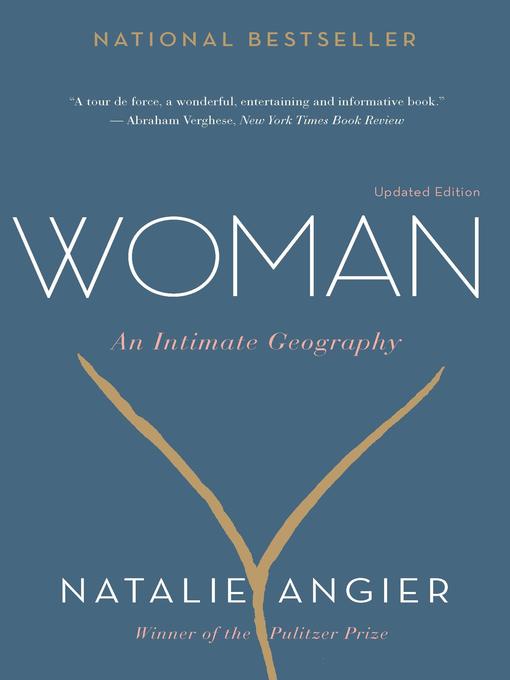National Book Award finalist
A New York Times notable book
"One knows early on one is reading a classic—a text so necessary and abundant and true that all efforts of its kind, for decades before and after it, will be measured by it."—Thomas Lynch, Los Angeles Times
After fifteen years in print, Woman remains an essential guide to everything from organs to orgasms and hormones to hysterectomies. With her characteristic clarity, insight, and sheer exuberance of language, bestselling author Natalie Angier cuts through the still prevalent myths and misinformation surrounding the female body, that most enigmatic of evolutionary masterpieces.
"Ultimately, this grand tour of the female body provides a new vision of the role of women in the history of our species."—Washington Post
- Available now
- New eBook additions
- New kids additions
- New teen additions
- Most popular
- Try something different
- See all ebooks collections
- New audiobook additions
- Available now
- Always Available Audiobooks
- New kids additions
- New teen additions
- Most popular
- Try something different
- See all audiobooks collections
- Always Available--Everyone Reads Collection for Adults
- Always Available Classics for All Ages
- Spanish Collection
- Chinese Collection
- Marvel Comics
- Library & Information Science Professional Development Resources
- Author Interviews!
- See all featured collections collections



